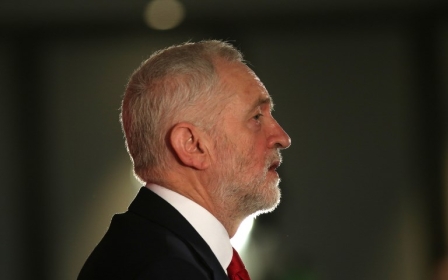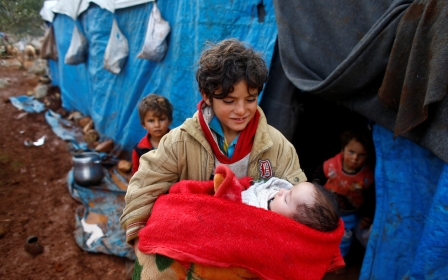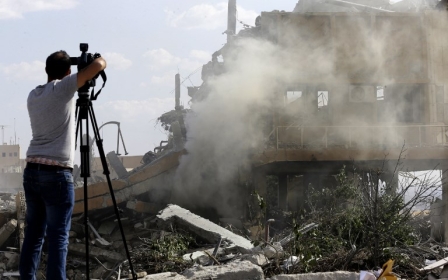US will impose more sanctions on Russia over Syria
The United States will impose new sanctions on Russia over an alleged chemical attack by the Syrian government, US Ambassador to the United Nations Nikki Haley said on Sunday.
Haley said the sanctions, to be announced on Monday by Treasury Secretary Steve Mnuchin, will target companies that supplied Damascus with equipment and other material related to chemical weapons.
"You will see that Russian sanctions will be coming down. Secretary Mnuchin will be announcing those on Monday, if he hasn't already," Haley said in an interview with CBS's "Face the Nation".
The move follows air strikes by US, French and British forces in retaliation for an alleged Syrian chemical weapons attack on 7 April in Douma, a formerly rebel-held town near Damascus, in which more than 40 people were killed.
In an apparent response to Haley, a senior Russian lawmaker warned on Sunday that new sanctions will hurt the US and Europe more than Moscow.
Evgeny Serebrennikov, deputy head of the defence committee of Russia's upper house of parliament, said Moscow was ready for the new penalties.
"They are hard for us, but will do more damage to the USA and Europe," RIA news agency quoted Serebrennikov as saying.
US military officials said the air strikes early on Saturday in Syria took out "the heart" of Syria's residual chemical weapons capability.
The strikes sought to avoid contact with Russian forces in the country.
But US officials have blamed Russia for failing to rein in its Syrian ally, as the guarantor of a 2013 agreement to dismantle Syria's chemical weapons.
That agreement was brokered by Moscow to avert retaliatory US strikes in the wake of a sarin gas attack in the rebel-held Eastern Ghouta suburbs of Damascus in August 2013 that reportedly killed more than 1,400 civilians.
Damascus has denied responsibility for all gas attacks.
"I think everyone knows that we sent a strong message and our hope is that they listen to it," Haley said of the air strikes.
"With the political and diplomatic actions that we're taking now, we wanted ... Iran and Russia to know that we meant business and that they were going to be feeling the pain from this as well."
Middle East Eye propose une couverture et une analyse indépendantes et incomparables du Moyen-Orient, de l’Afrique du Nord et d’autres régions du monde. Pour en savoir plus sur la reprise de ce contenu et les frais qui s’appliquent, veuillez remplir ce formulaire [en anglais]. Pour en savoir plus sur MEE, cliquez ici [en anglais].




